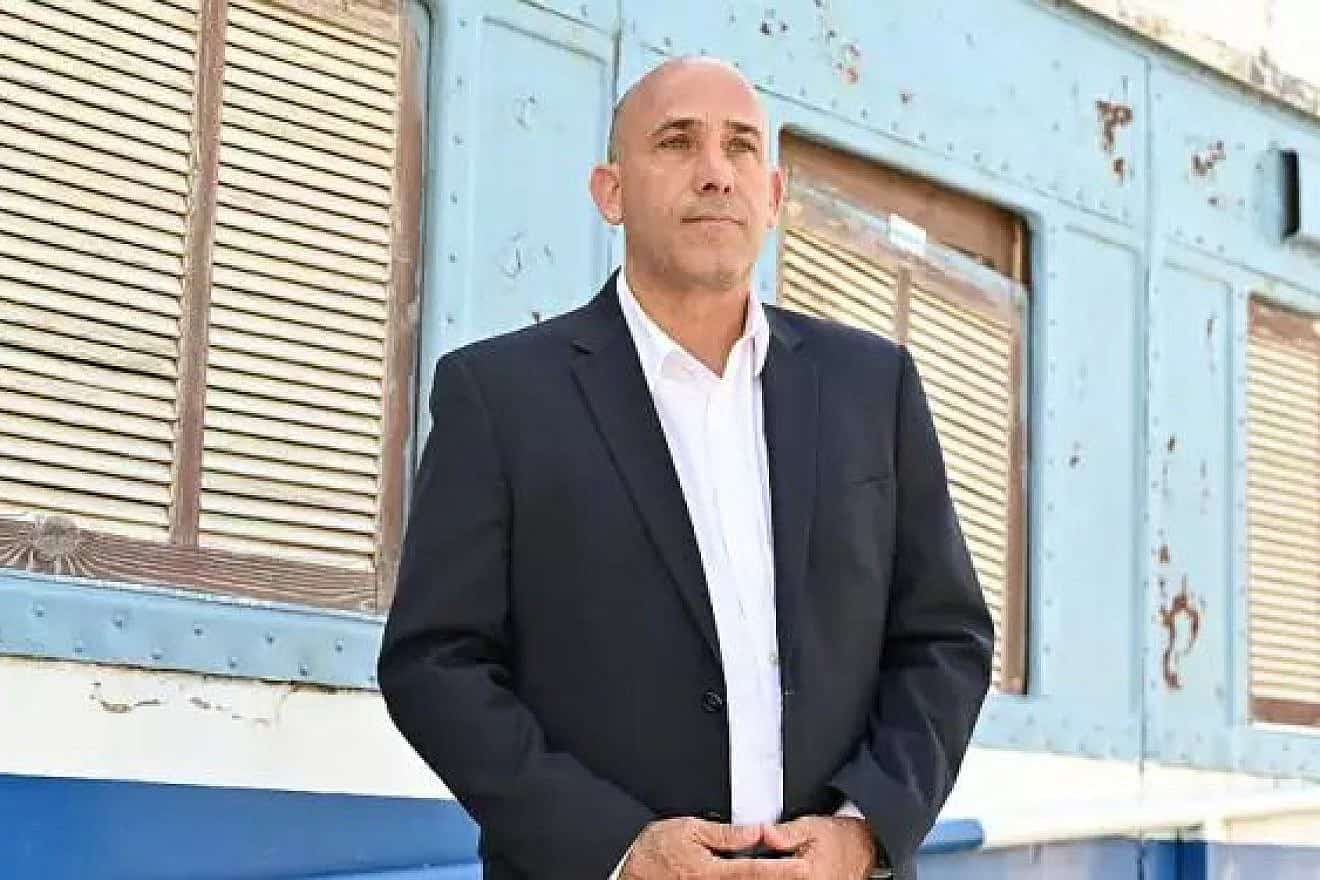“Iran is keeping Israel and the world busy with its proxies, and is managing to deflect attention to secondary arenas, while it advances towards nuclear capabilities.”
So warns Brig. Gen. (res.) Amir Avivi, CEO of the Israel Defense and Security Forum (Bitchonistim), in an interview in advance of the Israel Hayom Tomorrow Conference, scheduled for April 16 in Ashkelon.
According to Avivi, Iran was and remains the main threat, and the objective of the Tehran-inspired attacks from Lebanon, Yemen and Iraq is to obscure the main goal of the Islamic Republic. “Israel needs to clearly signal that it can’t live with a nuclear Iran and that it will act with force by itself if needed.”
In March, the Modi’in-based movement, which Avivi established four years ago, published a detailed, up-to-date position paper on the security dangers facing Israel. The attack on Oct. 7, he says, was a “spoke in the wheel” of the coalition that the United States tried to coalesce via normalization between Saudi Arabia, the entire Sunni world, and Israel—a move that failed.
“The Iranians understood that a coalition would arise that would challenge them and decided to put a stop to it. Therefore, their strategic decision was to allow Hamas to attack. Anyone who thinks that Hamas could do this on its own initiative isn’t connected to reality,” Avivi says.
“The level of coordination between Iran, Hamas and Hezbollah was high, but it was led by two assumptions that were shown to be mistaken: That Israeli society was divided and therefore the IDF wouldn’t succeed in acting, and that the event would result in an Arab uprising even more significant than that which occurred following the IDF’s ‘Guardian of the Walls’ operation in 2021—something that didn’t happen.”
“When the Hamas terrorists began their slaughter, which included rape, beheading and kidnapping, they thought that they would win. They were sure that they could attack us brutally and survive. They thought that Israeli society and the political system weren’t functioning, that there was a significant island of refusal [to serve] in the army,” Avivi says.
“None of this was true. As we have seen in the past, in the history of war there are cases in which one side surprises another, but when the other side recovers, it destroys the enemy. This is what needs to happen this time.”
Finish the job in Rafah
Avivi calls on the decision-makers to start acting in Rafah and to complete the mission in Gaza—to destroy the military and political capabilities of Hamas and to free the hostages, to be best prepared for the coming challenges.
“Israel decided that it would be on the defensive in all arenas, and on the attack in Gaza. Now we need to complete the mission of subduing Hamas. Every day that we waste and don’t act in Rafah increases international pressure on us. We need to prove our determination,” he says.
“You need to understand: Rafah is the key to victory in the war. The entire Hamas leadership has withdrawn there, and all the hostages are there as well. Every place the IDF enters, Hamas retreats elsewhere, and now they have nowhere else to withdraw to. They’re with their back against the wall, literally, because of the wall built by Egypt.”
To Avivi, the motives behind the international pressure regarding Rafah are clear.
“It’s not by chance that there’s tremendous pressure for us not to enter there,” he explains. “Those who don’t want us to win don’t want us to enter Rafah. The conclusion will be there; we’ll reach the leadership, and we’ll kill them. We’ll destroy the six remaining battalions—four in Rafah and two in the refugee camps in the center [of the Strip]—and we’ll complete the mission.”
Removing the threat to the north
The north also demands dramatic change, Avivi says.
“We had tremendous luck that Hezbollah didn’t attack us on October 7—a major mistake by the Iranians. Now, we need to take advantage and remove the threat from the north.
“For its first 40 years, Israel always emphasized the importance of everything connected to Zionism, but in the last 30 years, it has taken less of a priority. Now there is the opposite trend: October 7 created a historic possibility of changing the reality of the State of Israel. We need to defeat our enemies and build a completely different value system.
“It may be that we have a bright future, and that depends on us, but it requires total determination for security and unity. Sadly, all kinds of forces are trying to sever this required unity and to threaten, with petty politics, Israel and its war goals.”
The patience required is frustrating, Avivi concludes, but he’s optimistic.
“The question is where Israel will be in another year or 18 months. The war may be long and may continue for a year or even years, but in the end, if we are determined, it will be a golden age for the State of Israel and the Jewish people.”
At the end of our discussion, Avivi lays out his vision: “We need to reach a situation in which Israel can strengthen itself into a heavily armed and capable war machine, with a much larger and equipped army, and with the involvement of other sectors of the population.
“At the same time, we need to understand that we are not a nation of Spartans whose whole being is devoted to war. We must maintain a level of life and quality of life, as we have been known to do throughout our history. A country that also knows how to advance itself in the civilian arena.
“If there’s something that we all need to understand about October 7 it’s that we need to connect to our inner essence as the Jewish people in our land. To understand that everything begins with values, from determination and justifying our path,” Aviv says.
Originally published by Israel Hayom.


























